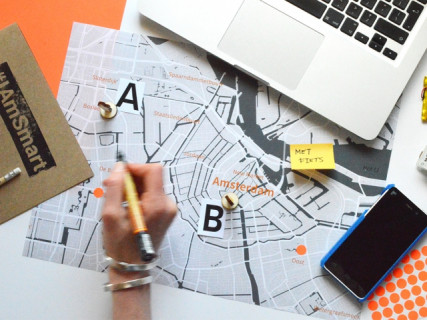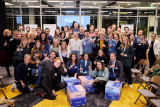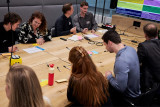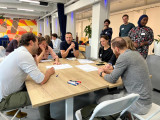What exactly is citizen science? And what is its importance? What can we all measure ourselves, but how can we do that best, and perhaps most importantly, how do we use the acquired knowledge to make our living environment healthier and more enjoyable? In this crash course we explain the idea behind citizens science and we look at the potential of this movement for society, based on the lessons we have learned in various projects.
Entrance is € 5 (incl. one drink). This evening is Dutch spoken.
Programme
- Welcome and introduction by the moderator of this evening: Frank Kresin (DesignLab UT Twente).
- Presentation of the Making Sense publication: Citizen Sensing, a toolkit
Ivonne Jansen-Dings (Waag Society) presents the new publication 'Citizen Sensing, a toolkit', in which the results of the European project Making Sense are explained. What lessons have we learned in recent years, what is the importance of citizen science and what is the potential?
- Reflection on the Smart Citizens Lab particulate matter measurements
To make the concept of citizens science concrete, we present a project that is currently ongoing. Together with the RIVM and a group of Amsterdammers, we are investigating the effects of fireworks on the concentration of particulate matter (pm) in the air from just before the turn of the year until now. During this evening Joost Wesselink (RIVM) will talk about the approach of these measurements and will we discuss with participants about the results that these measurements have produced. What we can do with this knowledge?
- Measuring particulate matter yourself
After that, we will use the RIVM sensors ourselves and measure the difference between particulate matter indoors and outdoors under different conditions. What do we measure and what does that mean?
About the Smart Citizens Lab
The program series of the Smart Citizens Lab consists of participatory workshops, presentations and design sessions aimed at improving and mapping the living environment. In what world do we want to live and what role does technology play in this? We explore solutions that we can directly influence ourselves. Together we develop do-it-yourself (or do-it-together) solutions and creative interventions. There is room to experiment and learn, to explore together what we want and how we can achieve it.
Making Sense has received funding from the European Union’s Horizon 2020 research and innovation programme under grant agreement no. 709443.





